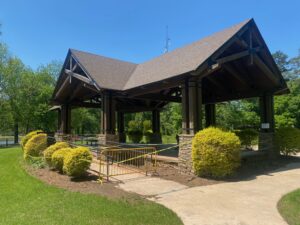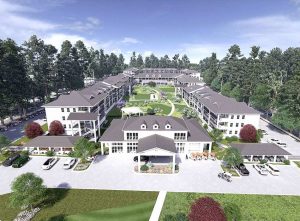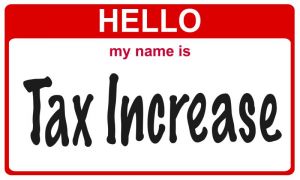With stopgap funding in the upcoming Peachtree City budget for road and cart path maintenance, City Councilman Eric Imker wants council to look toward a more permanent solution.
At the Aug. 1 council meeting, Imker briefly shared a spreadsheet of the possible solutions to get the needed $1.5 million a year to handle city street and cart path maintenance, which was funded completely by proceeds from the 2004 countywide transportation sales tax. The city has completely exhausted its funds from that tax and had to scrounge for funds in the budget this year to address a significant repaving of Crosstown Road.
Another proposed countywide sales tax, if approved by voters in November, would generate $14.6 million over two years and could fund the city’s road and cart path maintenance needs for between seven and 10 years, costing a total of between $300 and $400 for the average Peachtree City homeowner, by Imker’s estimation.
If the sales tax fails to pass, however, the city has other options available on Imker’s list, including the possibility of cutting $1.5 million by “reducing city services” or simply waiting on future tax digest increases, as every 2 percent in digest growth nets the city an additional $235,000 a year in revenue, according to Imker.
Options to raise funds include two that would increase the city’s millage rate. A millage rate increase of .85 mills would raise the needed $1.5 million a year and cost the average homeowner $81 a year on an annual basis. The second option involves a general obligation bond that would need voter approval, would cost $62 a year over 10 years and would fund the city’s maintenance needs for between five and seven years, according to Imker.
Imker notes that the sales tax is ultimately the least-expensive option, as it would cost homeowners between $300 and $400 total over two years as opposed to $620 over 10 years for the general obligation bond funding or $810 if the millage rate-only increase holds up for ten years.
The sales tax also has the bonus of getting contributions from residents who don’t live in the city, Imker noted on the spreadsheet.
Yet another funding option that would have a limited effect is a potential use of the city’s excess amount of cash reserves, which are required to be an amount equal to 20 percent of the city’s annual budget but are currently hovering around 35 percent. Using the cash reserves would only fund about two years’ worth of road and cart path maintenance by Imker’s calculations.
Imker also left open the possibility that a combination of the various options could be used, noting that many of the options were outlined by city staff in the city’s advance budget documents earlier this year










Leave a Comment
You must be logged in to post a comment.